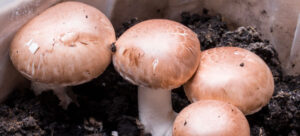Even though silicon is not considered an essential mineral for a lot of plants, silicon has proven beneficial effects on plant’s growth. It can contribute to strength, quality, resistance to stresses and development.
These factors prove why incorporating a silica supplement into your feeding schedule can be beneficial.
Why Is Silicon Important To Plant Health?
The nutrient silicon is absorbed as silicic acid and is deposited as hydrated amorphous silica in a plant’s cell walls. Its proven to improve and impact cell wall strength and leaf erectness.
Silicon stimulates nutrient uptake and the plant’s process of photosynthesis. Plants fortified with silica are stronger and produce bigger, healthier and more abundant flowers and fruits.
It has also proven to increase plant tolerances of heat and drought conditions.
Although silicon, by itself, is not needed in order for a plant to grow, silicon has been shown to influence in particular the plant’s interactions with zinc, boron, and manganese.
Silicon deficiencies are very rare since it's the second most abundant element in earth's crust, and is found in significant quantities in soil.
Identifying Silicon Deficiency In Plants
Silicon deficiency affects new leaves, roots or stems with malformations. This can be warping, hardening, and sometimes thickening. When plants are grown without silicon, they run the risk of being structurally weaker.
How To Correct Silicon Deficiency
In the case of a silicon deficiency, potassium silicate may be the solution. Potassium silicate is a beneficial supplement for your plants. It will make them larger, stronger, more resilient to diseases and pests, and capable of yielding more.
Because silicon requires a higher pH level in order to be soluble, and in turn be taken up through the plant’s roots, silicon cannot be included in a regular feed schedule.
In order for silicon to be used as an available supplement for your plants, it needs to be added separate.
Now you know the benefits of monitoring the silicon content in your soil and hydroponic growing systems. You should be aware of what to do when you spot a deficiency.
Be sure to have the necessary tools on hand to keep your plants at their best health.
Want to learn more about nutrient deficiencies?
Read our entire nutrient deficiency series as well as learning about micro vs macronutrients.










